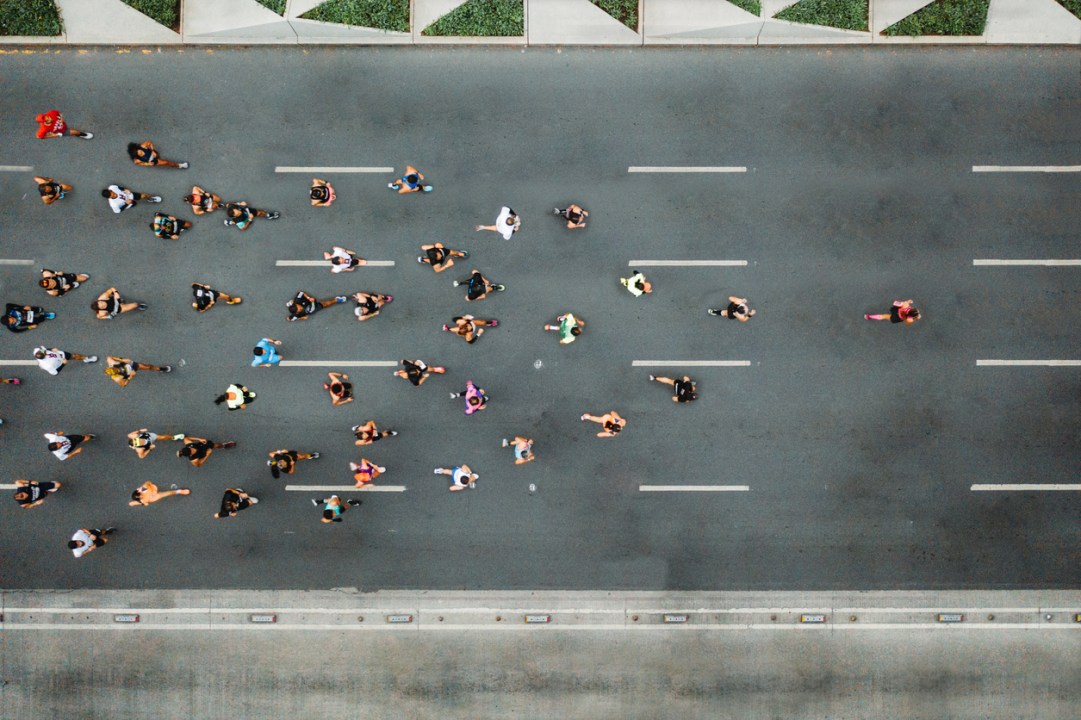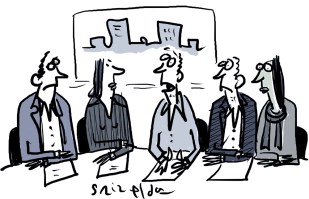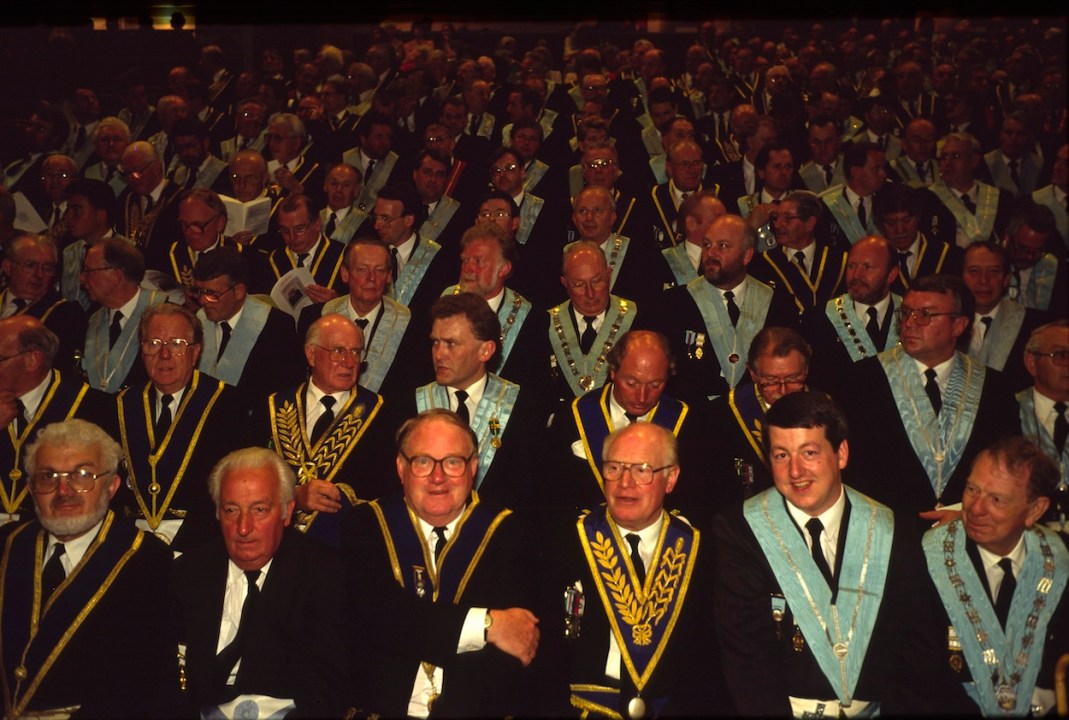(sublinhados meus)
O candidato matrix
Em boa-verdade, a grande questão dos próximos anos políticos é mesmo esta: para além da propaganda, na prática, que significa o projecto de André Ventura para o país?
No filme de 1972, The Candidate, Robert Redford encarna um jovem idealista que, sem perspectivas reais de ganhar uma eleição para o Senado norte-americano, é convencido por um experiente director de campanha profissional a candidatar-se contra o senador incumbente, tido como invencível. Com a garantia de que, não tendo hipótese de ser eleito, poderia dizer o que lhe apetecia, de forma genuína e sem filtros, a personagem de Redford aceita o repto. A trama evolui, claro, e, a pouco e pouco, à medida que aumentam as hipóteses do candidato outsider ganhar, também aquilo que se lhe pede em termos éticos e morais começa a mudar. Ao longo do filme a história acaba focando-se na forma como existe um enorme abismo entre, por um lado, o processo de conquista do poder através da retórica, do idealismo e da boa-vontade e, pelo outro, as concessões, os compromissos e as escolhas políticas, morais e pessoais que a realidade do exercício do poder acabam por exigir.
No final, o problema do candidato passa a ser a possibilidade de vitória. Como Lenin, perante a hipótese de ser chamado a concretizar a sua retórica desprendida e genuína, o candidato pergunta-se angustiado: o que fazer? A esta pergunta, nos nossos dias e no mundo real português, também terá que responder em breve o nosso candidato moralista, solto, anti-sistema que, com timbre estridente e convicção aparentemente genuína, tem atacado o sistema político português incumbente. Infelizmente, num regime mediático onde impera o clique, a parangona e a farsa, tal pergunta tem passado relativamente despercebida, mas, em boa-verdade, a grande questão dos próximos anos políticos é mesmo esta: para além da propaganda, na prática, que significa o projecto de André Ventura para o país? Considerando a retórica anti-impostos e o anúncio desmedido de medidas caríssimas, táctica não propriamente invulgar em quem almeja chegar ao poder, onde residirá o verdadeiro compromisso de Ventura? Por enquanto, tirando uma mão cheia de ministros sombra, sobra o mistério.
Entretanto, após as últimas eleições legislativas e os célebres 23%, espíritos mais atentos e críticos talvez antecipassem que, finalmente, aquele momento de definição onde o Chega será forçado a transfigurar-se de um partido de protesto — repare-se no nome — num partido que possa, de facto, conquistar o poder, estaria para breve, e com ele, o momento “que fazer?” do candidato Robert Redford encarnado em Ventura. Só que não. Caídos do imaginário de normalidade e saúde democráticas onde Portugal não vive, quando aterrados no pântano tristonho da choldra política lusitana, sobra-nos somente a lengalenga da “extrema-direita”, “do ataque à democracia”, da indignação generalizada para com uma possibilidade que, afinal de contas, no campo dos factos, ninguém sabe sequer muito bem o que é — e a culpa de tal desconhecimento não pode ser assacada apenas a Ventura, pelo contrário, esta é sobretudo de quem cabia perguntar-lhe e exigir-lhe respostas e que se preocupa apenas em, histericamente, gritar “lobo” com a alegada “ameaça” que aquele incarna.
Entretanto, vieram as autárquicas e o Chega, em parte, esvaziou-se na abstenção — mais uma vez, aliás, tal qual nas últimas Europeias — para alívio generalizado da populaça comentadeira e alcoviteira das rádios e TV. Na volta, pensa-se agora, afinal, até há salvação para o vendaval Ventura: se transpusermos para nível nacional, imagina-se, as virtudes, proximidades e especificidades do “poder local”, eis que se afugenta a borrasca política e se salva a Situação. Já alcançar que os votos que ora não vieram votar nos múltiplos candidatos autárquicos Chega por esse país fora são votos que, quando aparecem, apenas parecem votar Ventura, esse singelo facto pareceu passar completamente despercebido a essas argutas mentes analistas do fenómeno político nacional. Mais, que o próximo acto na peça política nacional é uma eleição altamente personalizada, por voto directo, em círculo único nacional, porventura a melhor conjugação de factores que pode haver para que o eleitorado que vota Ventura, e apenas Ventura, se mobilize mais uma vez, como nas Legislativas, para aparecer nas cabines de voto, ora aí está mais uma pequena nota de rodapé que insiste em não aparecer no debate político nacional.
Não, a grande questão política ao que parece é o desgraçado cataclismo que ameaça fazer desabar os céus sobre os desgraçados portugueses se Ventura, sempre ele, tiver uma boa votação e, quem sabe, “passar à segunda volta”. Em coro, cantam a uma só voz: Marques Mendes, o comentador residente que sucedeu ao prof. Marcelo nas suas “conversas em família” na esperança — óbvia, fajuta, quase ridícula — de suceder-lhe também no cargo presidencial, já explicou que Ventura quer “destruir a democracia”. António José Seguro, o socialista renegado que anseia por roubar votos a Marques Mendes concorda. Para ele, “há uma ameaça à democracia”, ameaça para a qual um voto na sua pessoa representa, não apenas a solução, mas a casa de albergue de todos os “democratas, progressistas e humanistas”. Já Gouveia e Melo vai mais longe. Para o Almirante salvador da pátria na luta contra o tenebroso vírus da COVID, Ventura “entrou num corrupio de racismo” e, mais grave, lembra “Hitler”. São génios, senhores, são génios — ou então não, vivem no mundo político português como pretensos actores principais sem perceber patavina do que está a acontecer à sua volta.
Mais à esquerda, a coisa é igual e, como sempre, a ameaça existencial de Ventura domina o discurso. Catarina Martins, uma democrata exemplar da extrema-esquerda jacobina, anuncia a sua candidatura, não apelando à revolução, mas, à contrário, garantindo que com ela a revolução (de Ventura) nunca ocorrerá. Nunca, jamais! Em sendo a senhora eleita Presidente da República, o “Chega”, garante-nos ela, “nunca tomará posse como Governo” — quando o Bloco de Esquerda é o guardião do regime algo está podre no reino português. Já António Filipe, candidato do cadáver adiado PCP, esse assume que tudo fará para “evitar que a extrema-direita” chegue ao poder, obviamente, na medida em que a campanha do Chega e de Ventura “envergonha o país” — já o facto do PCP ainda existir deveria ser algo que nos envergonha a todos, mas enfim, é o que há. Finalmente, do Livre, sai um desconhecido que visa ocupar o espaço que Seguro larga vazio à esquerda e, claro está, também ele aspira a “defender os ideais da República”, pois esta, tal como a democracia, Abril e tudo e tudo e tudo “está sob ataque” — de quem, ora de Ventura, pois claro. São visionários, já percebemos.
Ou seja, e tal como em tempos cantou a candidata do ADN à Câmara Municipal de Lisboa, graças a esta inteligência política toda, cada vez mais pode cantar Ventura em plenos pulmões que, na política, nas eleições, em Portugal, no mundo mediático deste pequeno rectângulo à beira-mar plantado, em todo e qualquer recanto político nacional, incluindo nas cabecinhas pensadoras do regime, o papel principal é dele — e é mesmo. Nestas condições, levado em ombros pelos principais agentes políticos nacionais, em particular os adversários, alguém se pode mesmo admirar que Ventura tenha cada vez mais votos, cada vez mais peso, e esteja cada vez mais perto da vitória final? E tudo isto sem que algum dia, algum jornalista, ou algum adversário político, tenha tido a capacidade para, pelo meio do nevoeiro mediático que o próprio cria para se anunciar como D. Sebastião, forçar Ventura a dizer a única coisa que, de facto, importa — o que é que ele quer e vai mesmo fazer no caso de ganhar?
Vivemos, portanto, no devaneio completo onde o centro gravítico de tudo o que de relevante acontece na bolha mediática é André Ventura. Os jornalistas, ansiando por audiência e o momento de glória em que saquem um gaguejo ou fraquejo do centro disto tudo, acusam, atacam, picam um Ventura que, sempre de sorriso na cara, como Neo no filme Matrix, se desvia com facilidade super-sónica das balas que lhe são enviadas. Porquê? Porque, tal como Neo, Ventura controla a “matrix” política, representando o Alfa e o Omega do mundo mediático entretanto constituído em torno de si. No final, sobram dois mistérios: primeiro, que ninguém, dos candidatos aos jornalistas, perceba que o escândalo, a indignação e a fúria que é lançado contra Ventura apenas o fortalece; depois, que também não haja alma alguma preocupada com o que Ventura, por detrás das manobras e do folclore, realmente significa para o país.
Não deixa de ser extraordinário que políticos profissionais e jornalistas com décadas de experiência vivam confortáveis com esta situação, por eles co-criada, em que todo o mundo mediático se senta numa audiência virada para um palco ocupado por apenas uma pessoa. Que não percebam que é essa situação, junto com a ambiguidade que a sua proposta representa — onde cabe tudo e o seu contrário —, que lhe dá o poder, a força e o sucesso eleitoral, é ainda mais extraordinário e uma infeliz prova da mediocridade reinante que convive, e se alimenta, de um vazio que, esse sim, representa uma ameaça, não à democracia ou à República, mas ao regime político como um todo.
O caso prático do Almirante Melo comprova o ponto. Enquanto viveu na sombra da posição mediática central em que foi artificialmente colocado por diversos interesses políticos e mediáticos, estava praticamente eleito presidente à primeira volta, e garantidamente à segunda. Mas, precisamente porque, ao contrário de Ventura, não foi a arte e o engenho do próprio que o colocou nessa posição, quando forçado a sair da ambiguidade e a explicar ao que vinha, a cada vez que foi forçado a falar lá deu a douta personagem um tiro de canhão no seu próprio barco que, já de tanta água carregado, ameaça ir ao fundo ainda antes de sequer chegar às eleições. Também ele pretendeu ser ambíguo, também ele desejou chegar a todos — primeiro, àquela direita que adora uma farda, depois, ao centro que não é de esquerda nem de direita, rigorosamente ao centro entre PS e PSD, finalmente, porque os focus group revelam que Seguro deixa espaços abertos à esquerda, anunciando-se agora como sucessor de Soares e o novo grande defensor dos imigrantes que, garante ele, ao fim de dez anos são tão portugueses quanto os restantes —, assim se mostrando na prática que, sem o talento de Ventura e a cumplicidade dos media, quando a ambiguidade é forçada a materializar-se numa opção clara, se essa opção não passar de um flato lançado no vento, a força eleitoral evapora-se na atmosfera com a mesma rapidez que o metano das vacas.
Não nos iludamos. André Ventura é, de facto, o político mais influente do país. Também será, provavelmente, o mais talentoso — em terra de cegos quem tem olho é rei. Resta é perceber o que é que esse talento retórico e mediático significa para Portugal, pelo que das duas uma: ou Ventura terá em breve o seu momento Redford e consegue orquestrar um programa, uma linha de rumo concreta e um plano de acção prático para o país que agrade a uma grande maioria; ou então, porque não conseguindo tal desiderato, ou, mais provável, porque é sempre impossível agradar pela positiva, pela proposta construtiva, a todos aqueles que, até agora, o apoiam única e exclusivamente porque representa o descontentamento, a desilusão e a raiva com o regime e o sistema, de uma forma ou outra o grande desafio de Ventura é precisamente aquele que matou o Almirante — o da materialização.
Até agora o seu talento e a inabilidade dos adversários e jornalistas adiou essa necessidade, mas, mais tarde ou mais cedo esse momento chegará. Para bom interesse do país seria melhor que isso ocorresse antes de Ventura chegar ao Governo ou, quem sabe, apesar de improvável, já nos próximos meses, à Presidência da República — mas sendo o país aquilo que é não nos poderemos surpreender que a coisa continue mesmo assim, de vazio em vazio até à vitória final. Uma coisa é certa, em democracia cada povo tem aquilo que merece.





















